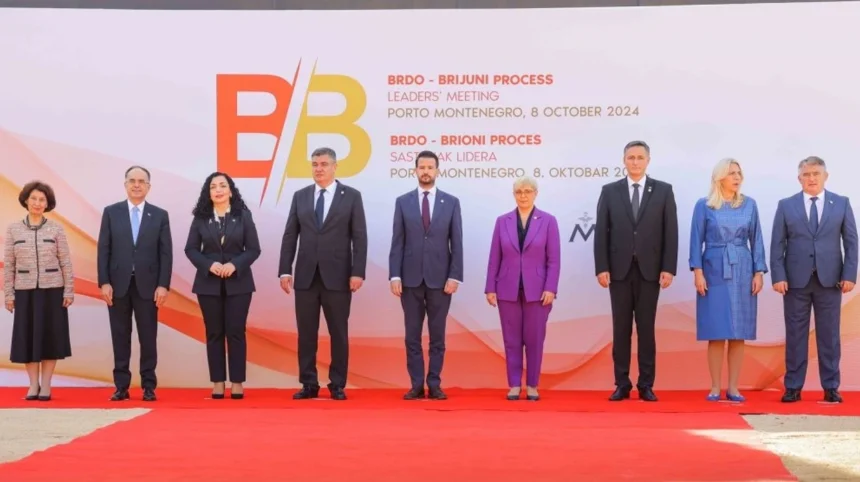The leaders of the Western Balkans will meet this Monday in Durrës, Albania, for the annual Brdo-Brioni Initiative Summit, under the motto: “Shared interests, joint commitment for a common future: Together towards the EU.”
According to organizers, the summit will focus on both the European perspective of Western Balkan countries and the strengthening of regional cooperation.
The Brdo-Brioni process, a joint Slovenian-Croatian initiative launched in 2013, includes Albania, Bosnia and Herzegovina, Montenegro, Kosovo, North Macedonia, and Serbia.
The Durrës summit is organized by Slovenian President Nataša Pirc Musar and Croatian President Zoran Milanovic, and hosted by Albanian President Bajram Begaj. Confirmed participants include:
- Montenegrin President Jakov Milatovic
- Members of the Bosnian Presidency: Željka Cvijanović, Denis Bećirović, and Željko Komšić
- President of North Macedonia Gordana Siljanovska-Davkova
- Kosovo President Vjosa Osmani
- Serbian President Aleksandar Vučić
The Brdo-Brioni Initiative aims to promote mutual cooperation and support regional countries on their path toward EU integration. At the Durrës summit, Slovenia will emphasize that EU enlargement in the Western Balkans is the most effective geopolitical tool for ensuring stability, peace, and security in the region.
Leaders will also focus on the implementation of the EU Western Balkans Growth Plan, designed to gradually integrate regional countries into the EU while delivering tangible benefits for citizens. To support this, the EU has allocated a €6 billion financial instrument for 2024–2027.
Estimated allocations from the Growth Plan until the end of 2027 include:
- North Macedonia: €750 million
- Kosovo: €880 million
- Albania: €920 million
- Serbia: €1.5 billion
- Montenegro: €380 million
- Bosnia and Herzegovina: €900 million
(Reduced by 10% due to plan delays, according to the European Commission)
Since its launch in 2013, Brdo-Brioni meetings have been held annually. Last year’s summit in Montenegro highlighted the importance of good-neighborly relations, regional cooperation, and ongoing reforms, while committing to strengthening strategic dialogue with the EU and implementing the Green Agenda for the Western Balkans.







